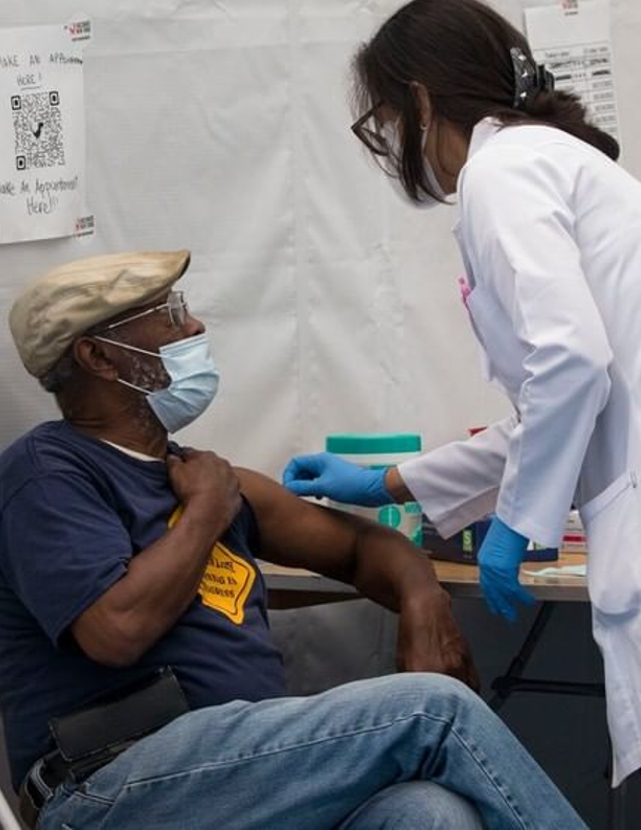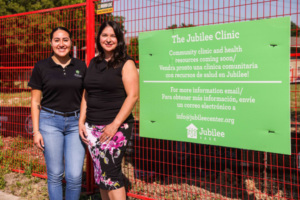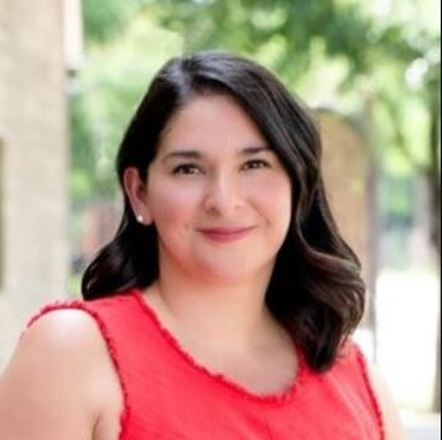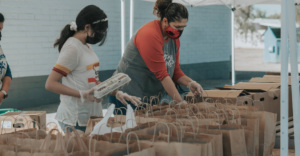Bringing Vaccinations to Areas Hit Hardest by the Pandemic
Program
Highlights

In 2021, PHI’s Communities Rise Together (RISE) program worked to support vaccination efforts in communities of color in more than 220 counties in more than 25 states with low vaccination rates. An example of their approach is Jubilee Park and Community Center in southeast Dallas, where the Center’s community health workers helped curb the COVID-19 pandemic by bringing vaccines to their majority-Black and Hispanic neighborhood.
40M+ people reached for vaccinations, outreach and education
137K+ people vaccinated
195K+ people connected to essential needs
200+ communities in 25+ States, Tribes, and Territories with low vaccination rates
-
Focus Areas
Communicable Disease Prevention -
Issues
Population Health -
Expertise
Coalition & Network Building -
Strategic Initiatives
COVID-19, Vaccine Access & Equity
In late 2021, the COVID-19 vaccine became available for children ages 5-11. But for adults in communities of color, barriers to access such as long distances to vaccine clinics, limited time off from work, a lack of caregivers for children or others in their care, and other issues made for vaccine inequities, and many feared that these obstacles would be similar for children of color.
In Texas, about 56% of children lack a medical home (ie, they do not have a personal doctor or nurse, a usual source for care, and family-centered care). As highlighted in USA Today, in southeast Dallas, the Jubilee Park and Community Center is addressing community health needs, serving the majority-Black and Hispanic neighborhood in southeast Dallas for 25 years. People living in this Southeast Dallas area have a life expectancy of 22 years less than those living just a few miles north.

Jubilee Park worked with PHI’s Communities Rise Together (RISE) program, a joint project with WE in the World and the WIN Network to support vaccination efforts in Black, Asian-American/Pacific-Islander, Latinx, Native-American, rural, immigrant/migrant and low-income older adult populations, working on the ground in more than 220 counties in more than 25 states, tribes and territories with low vaccination rates.
In Dallas, Jubilee Park hired more community health workers to bring vaccines to kids at home. They were counting on their after-school program and door-to-door approach to reach children of color for their vaccination outreach.

Our communities of color are not getting vaccinated at the rates that they should be. The center is not going to rely on folks going to a doctor’s office that they don’t have. The neighbors know us and trust us – that’s what we leverage and use.Marissa Castro Mikoy, director, Jubilee Park and Community Center
Across more than 200 communities in 25+ states, tribes and territories, RISE partnered with trusted community-based organizations who know best how to reach their neighbors and friends, and who are best positioned to help chart a path toward longer term healing and resilience in areas that have been hit hardest by the virus.
 By early 2022, this approach was proving successful. RISE partners had reached more than 40 million people and vaccinated more than 137,000 people, while connecting more than 195,000 people with essential resources like food and housing.
By early 2022, this approach was proving successful. RISE partners had reached more than 40 million people and vaccinated more than 137,000 people, while connecting more than 195,000 people with essential resources like food and housing.
Work With Us
You change the world. We do the rest. Explore fiscal sponsorship at PHI.
Support Us
Together, we can accelerate our response to public health’s most critical issues.
Find Employment
Begin your career at the Public Health Institute.
